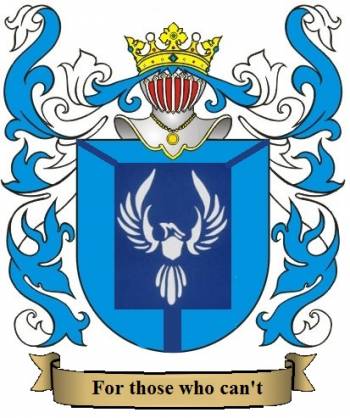
The Reivers are a group of elite warriors who ride on Hauwks, having set themselves the mission of protecting Urt against great evils. They do not involve themselves in politics at all, only stepping up against things like monsters or other great evils.
The Reivers are not affiliated with any nations and are a small group compared to groups like the various nations armed forces, but their warriors are quite skilled and the Hauwks offer them great mobility.
Within the city of Duirt, the Reivers reside in Reiver Hall, their local great hall.
Power of the Reivers
The Reivers are an organization of heroic Hauwk riders that historically have protected the Island of Urt from supernatural threats, and as such they are not bound to any country and do not answer to the authority of the three nations.
The Reivers are organized in Great Halls, spread out over Urt, where their hauwks nest and the Reivers live. Each Great Hall has a High Commander – the highest rank within the Reivers – and the commanders work together to make decisions for the Reivers as a whole.
Reiver positions are listed in the document on military positions. The position of High Commander is not available to players.
Relations with the three nations
The Reivers are recognized by all three as an organization for the greater good, and as such, they are given a lot of leeway when it comes to their work and investigations. In general, the high ranking people in the country (i.e. the South Voran King, the Ecclesian Cardinals and the Silverite Doge) are more interested that the Reivers do their job than in maintaining the authority of local figures, since its usually better that the major of Nowhereburg is insulted than that the Reivers fail to stop a threat to the country.
Reivers are not police officers, and as such do not hold legal power. They do not write tickets, impose fines on citizens or seize property and have no more authority to arrest a thief than any private citizens. However, Reivers do sometimes act to stop crime, so if the Reivers see a murder happen before their eyes, they step in (which is clearly within their perview), and they may even investigate a murder if they deem it to be important. Likewise, thieves and such may be stopped if they cross paths with Reivers.
When Reivers investigate crime, they do so more in a role similar to that of a private detective - as such, they don't have special legal rights, but if they catch a criminal and bring him in with evidence, well, the guards aren't going to complain. Moreover, because the reivers as an organization have a good reputation, their word carries weight in case of a trial. Regardless, these trials and subsequent punishments of any criminals they catch are not handled by the Reivers, but by whatever national authority has control of the matter. The Reivers are not allowed to apply their own justice, and for example kill a murderer except in self defense - that is for the local authorities to do.
Naturally in cases of emergencies, the Reivers have some rather extreme leeway. When that evil necromancer attempts to escape or summon his undead minions, the Reivers can and will stop him, and that may mean arresting him – but such cases are reserved for true threats, not for regular crime. They don't normally go into someone's house to arrest them while they sleep – that's a job for local law enforcement.
When there is no emergency, Reivers often coordinate with the local authorities, or (if those are involved in the plot) the authorities above them. It is not uncommon for the Reivers to even give backup to local law enforcement in arresting a dangerous suspect. After they caputre a criminal, Reivers hand over the captives to local authorities – unlike the Reivers, local authorities have prisons to deal with them, and Reivers have better things to do than babysit those whom they defeated.
In some cases, a judge may give limited emergency powers to Reivers for a temporary duration - in that case, they can serve to solve a specific problem with legal power, as decided by the judge individually in each case.
Still, it is important to note that since the Reivers are not a government, nor are they supported by one, Reivers do not hold special legal power over others. As such, Reivers can be arrested if they take measures against criminals beyond their position. For example, if there are bandits, Reivers cannot attack their camp at night and kill them in their sleep. That would be murder. Naturally if Reivers pretend to be helpless travellers and the bandits attack them, they can defend themselves with full force. Any bandits they capture should be delivered directly to jail. They cannot keep them for three days to interrogate them - that would be kidnapping.
Internal Order Keeping
Because being a Reiver gives them significant sway (authorities usually take the word of a Reiver seriously, and try to help where they can, since they know the Reivers work for the greater good), it also comes with significant responsibility. A single Reiver abusing his or her power can jeopardize the entire organization – after all, if authorities cannot trust that Reivers are working for the greater good, then why would they take the word of a Reiver seriously?
Reivers are not above the law and are not immune to the power of government. While within a countries borders, they are expected to follow the law of that country, or they can be arrested as anyone could be (a Reiver who steals is not immune to being arrested, for example). Under normal circumstances, a Reiver who commits a crime or who violates his welcome in other ways would be handed over to the Reivers to face justice there, rather than facing a trial within the country itself – only in highly exceptional circumstances, such as if a Reiver was caught redhanded murdering of the head of a house – would this state of affairs be challenged.
The Reivers investigate their own and give a fair hearing on what happened (usually under the perview of the local High Commander, or if they cannot be reasonably considered neutral, another High Commander flies in to oversee this – High Commanders are wise and responsible enough to ask for this if it is necessary.
If found that the Reiver indeed did misbehave (which is very rare, since most Reivers become Reivers out of conviction and for the greater good), then the Reivers usually give more severe punishments than would have been received by the local authorities. The heavier punishment – if found guilty of course – ensures that local authorities always pass the Reiver to the local High Commander for judgement.
A final note is that any Reiver who willingly commits an evil act will be killed by his own Hauwk.

